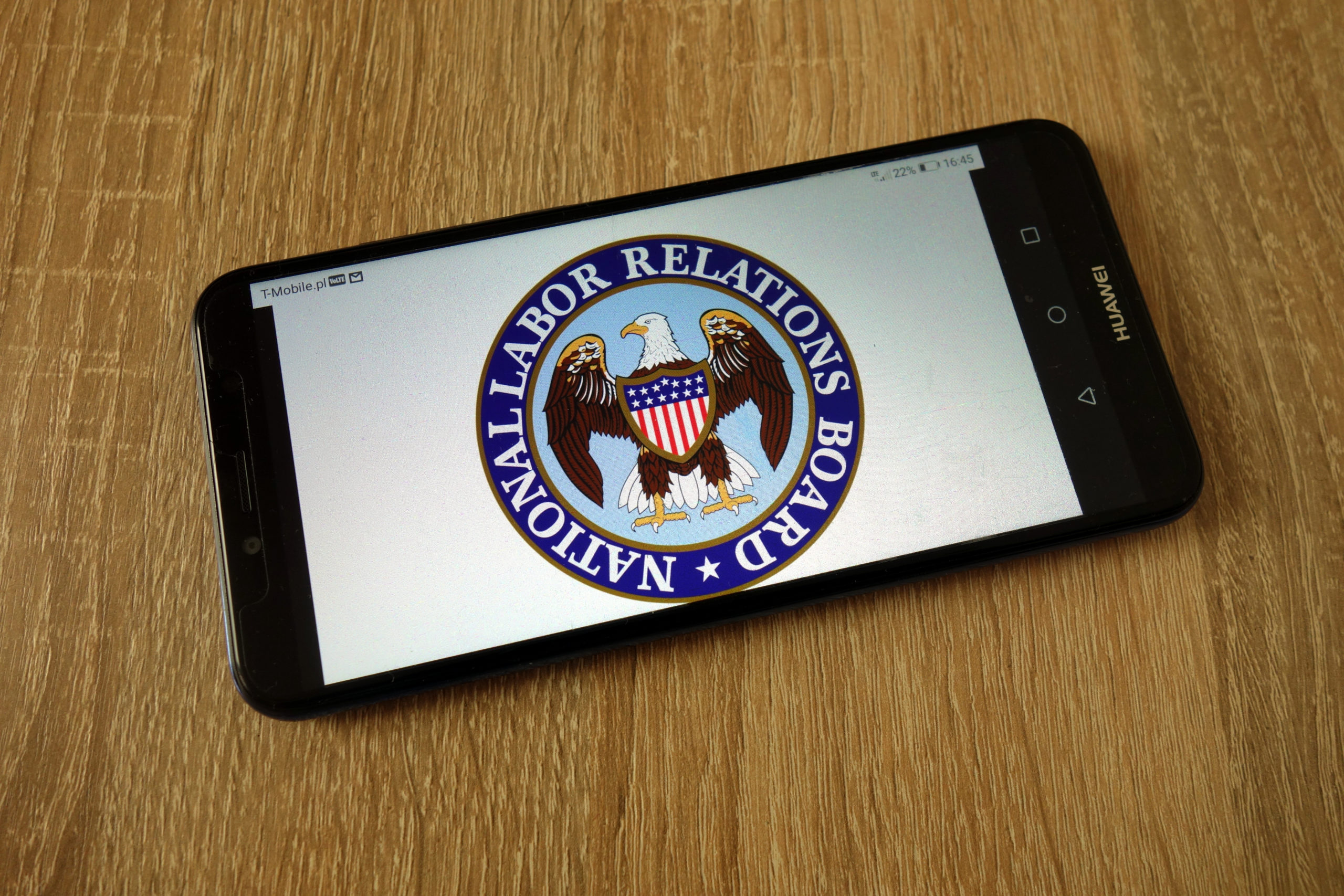Posts tagged WORKPLACE RULES
Apple accused by US labor board of imposing illegal workplace rules
October 1, 2024 // The National Labor Relations Board in the complaint announced late on Monday claims Apple required employees nationwide to sign illegal confidentiality, non-disclosure, and non-compete agreements and imposed overly broad misconduct and social media policies.
Heightened labor scrutiny looms over workplace rules
January 3, 2024 // The National Labor Relations Board earlier this year changed how it evaluates employer workplace rules in a way that’s expected to expose a broader range of rules to enforcement by regulators, even for employers who haven’t faced any union activity. “When [employers] make a business decision at a critical point in time — like when there’s a union campaign — there can become a presumption that the reason is not because there’s a business justification for it, but because it somehow relates to the union activity,” Chris Foster, a partner in the labor and employment law practice at McDermott Will & Emery, told Legal Dive.

Franchisors may be more liable for employees under broadened joint employer rule
October 26, 2023 // The National Labor Relations Board just issued a final labor rule that broadens the joint employer rule to make companies jointly liable with their franchisees for labor terms and conditions such as union contracts, pay, scheduling, and more, reviving an Obama-era rule that was limited in scope during the Trump Administration. Moving forward, franchisors will likely need to become more involved in creating and enforcing workplace policies, something that previously was left mainly up to franchisees. According to the National Labor Relations Board, this is a legal course correction back to the way the joint employer rule originally worked. Related: Appeal of McDonald's joint employer settlement denied by Labor board “The Board’s new joint-employer standard reflects both a legally correct return to common-law principles and a practical approach to ensuring that the entities effectively exercising control over workers’ critical terms of employment respect their bargaining obligations under the NLRA,” NLRB chairman Lauren McFerran said in a statement. “While the final rule establishes a uniform joint-employer standard, the board will still conduct a fact-specific analysis on a case-by-case basis to determine whether two or more employers meet the standard.” Trade organizations and business groups have pushed back against the ruling, with the National Restaurant Association and Restaurant Law Center, stating that it will “create chaos and legal questions” across the industry, as restaurants with franchisees try to figure out how to change their operational policies to fit the new rule. Related: NLRB to rule on joint employer status by summer “Today’s final rule on joint employer is a heavy blow to small business restaurant operators,” Sean Kennedy, executive vice president for Public Affairs at the National Restaurant Association said in a statement, adding that almost one-third of the restaurant industry would be affected by this rule. “The rule upends employment policy, adopting a far-fetched definition of ‘employer’ based on ‘indirect or potential influence’ of an employee and then fails to define how ‘indirect control’ will count toward a joint employer relationship.” The previous rule, which was finalized by the Department of Labor under the Trump administration in Jan. 2020, adopted a four-part test for assessing whether a company is a joint employer of another company’s workers, like the franchisor-franchisee relationship. Previously, companies were given joint employer status if they exercised “direct and immediate control” over the key terms of another organization's employees, like a franchisee. Now, that definition has been expanded to companies jointly classified as "sharing or co-determining” employment terms (like pay, scheduling, workplace rules, etc.).

Union-friendly changes in the works at U.S. labor board
January 4, 2023 // The U.S. National Labor Relations Board's Democratic majority is poised to make a series of key changes to federal labor law in 2023 that will aid unions amid a surge in organizing that gained momentum during the COVID-19 pandemic. The NLRB and its general counsel, Jennifer Abruzzo, have signaled their interest in overturning a number of Trump-era decisions that were favored by business groups.
